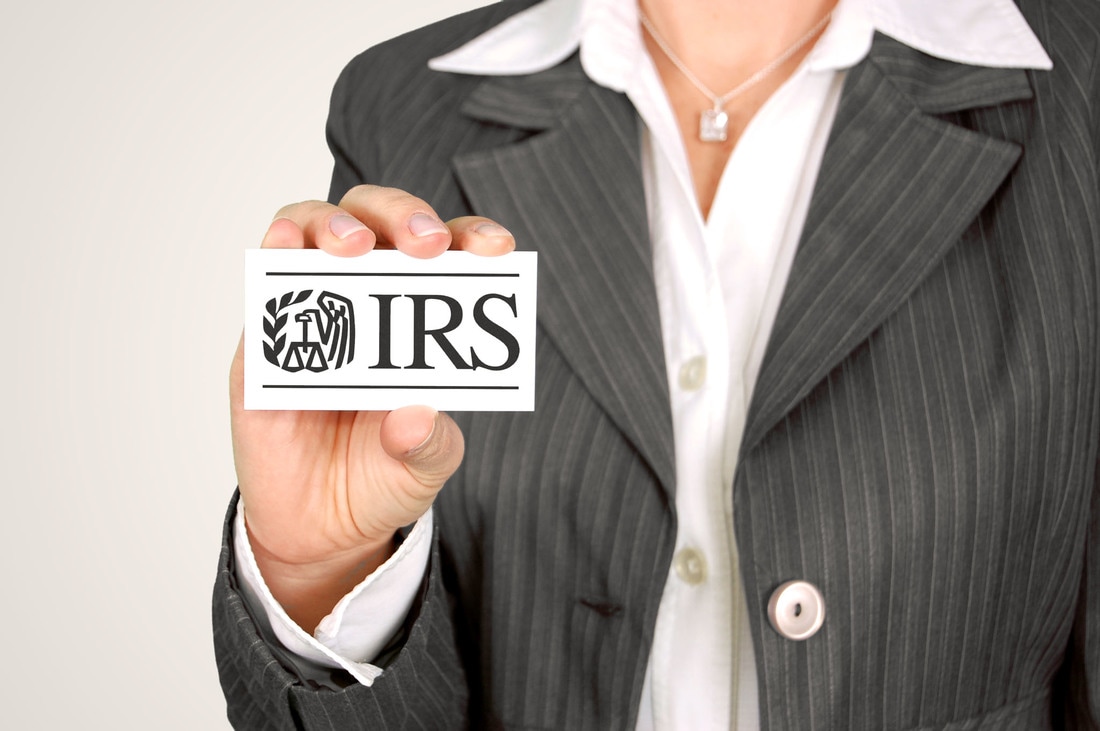|
Getting audited isn't anyone's idea of a fun time, but you can minimize the stress if you take the right approach.
Step 1: Understand why and when. While it's possible you were selected randomly, it’s more likely you were selected for a specific reason. One example might be if your deductions for charitable donations or business expenses were greater than is typical for your income or profession. Before proceeding, make sure you understand what is being challenged and when you must reply. Your chance of being audited “randomly” rises along with the size of your income. With $200,000 a year in income your chance of being audited nearly doubles (1.01% in FY2016) compared with a person who has half of that income. People with more than $10 million in income have a nearly 1-in-5 chance of an audit every year. Step 2: Consider the type of audit. There are three kinds of audits, in increasing levels of seriousness: a correspondence audit, (conducted through the mail); an office audit (a visit to nearest IRS office); and a field audit (an IRS agent comes to visit you). How and what you prepare will vary depending on the type of audit. About 70 percent of audits are conducted through mail correspondence and they typically involve routine issues like providing information about deductions. With proper documentation and prompt attention, they can be relatively painless to resolve. Office and field audits can be trickier and will involve more work and preparation. Step 3: Gather documents. Once you’ve understood the reason and the type of audit, gather and organize as much of your relevant records as possible to prepare your response. For example, if the audit is specifically about deducting vehicle costs for business use, gather your mileage logbook, receipts and any other supporting documentation. This will help prove your case and let the IRS know you are a responsible taxpayer. If you do not have adequate documentation, you can try to get third-party corroboration. For example, if you took charitable deductions but lost the receipts, you could try reaching out to the charity for their records. While the charity cannot create “new” receipts, they may have copies of confirmations sent out to you at the time of your donation. Step 4: Know your rights. You have rights to ensure you get a fair chance to state your position. Specifically, you have the right to clear explanations about what the IRS wants and their decision regarding your case. You have the right to appeal the IRS’s decision. You also have the right to have your accountant or lawyer represent you during the audit. In addition, there is a special Taxpayer Advocate Service that is available to help you navigate through problems with your case. While you should stand up for your rights, always be polite with the IRS agent assigned to your case. They are just doing their job and you aren’t doing yourself any favors if you show hostility during your audit. Step 5: Get help. No matter what, reach out immediately if you get a letter from the IRS. It pays to have the right help, because an experienced professional can guide you away from costly mistakes. Too many taxpayers have corresponded with the IRS without this help and have paid the price. Try as you might, you probably do not know the tax law as well as the IRS. Audits happen. How you handle them can make all the difference.
0 Comments
Beginning this month, the IRS will begin sending letters to a relatively small number of taxpayers whose overdue federal tax accounts are being assigned to one of four private-sector collection agencies. The new program, authorized under a federal law enacted by Congress in December 2015, enables these designated contractors to collect unpaid tax debts on the government’s behalf. Usually, these are unpaid individual tax obligations that are not currently being worked by IRS collection employees and were assessed by the IRS several years ago. Taxpayers being assigned to a private firm would have had multiple contacts from the IRS in previous years and still have an unpaid tax bill. “The IRS is taking steps throughout this effort to ensure that the private collection firms work responsibly and respect taxpayer rights. The IRS also urges taxpayers to be on the lookout for scammers who might use this program as a cover to trick people. In reality, those taxpayers whose accounts are assigned as part of the private collection effort know they have a tax debt.”
—IRS Commissioner John Koskinen The program will begin this week with a few hundred taxpayers receiving mailings and subsequent phone calls, with the program increasing to thousands a week later in the spring and summer. Taxpayers with overdue taxes will always receive multiple contacts, letters and phone calls, first from the IRS, not private debt collectors.
The IRS will always notify a taxpayer before transferring their account to a private collection agency (PCA). First, the IRS will send a letter to the taxpayer and their tax representative informing them that their account is being assigned to a PCA and giving the name and contact information for the PCA. Four private debt collection agencies are participating in this program:
The IRS says a taxpayer’s account will only be assigned to one of these agencies, never to all four. No other private group is authorized to represent the IRS. Once the IRS letter is sent, the designated private firm will send its own letter to the taxpayer and their representative confirming the account transfer. To protect the taxpayer’s privacy and security, both the IRS letter and the collection firm’s letter will contain information that will help taxpayers identify the tax amount owed and assure taxpayers that future collection agency calls they may receive are legitimate. The private collectors will be able to identify themselves as contractors of the IRS collecting taxes. Employees of these collection agencies are supposed to follow the provisions of the Fair Debt Collection Practices Act, and reportedly told they, “must be courteous and must respect taxpayer rights.” The private firms are authorized to discuss payment options, including setting up payment agreements with taxpayers. But as with cases assigned to IRS employees, any tax payment must be made, either electronically or by check, to the IRS. A payment should never be sent to the private firm or anyone besides the IRS or the U.S. Treasury. Checks should only be made payable to the United States Treasury. Private firms are not authorized to take enforcement actions against taxpayers. Only IRS employees can take these actions, such as filing a notice of Federal Tax Lien or issuing a levy. Be on the lookout for scammers posing as private collection firms. Remember that these private collection firms will only be calling about a tax debt the person has had – and has been aware of – for years and had been contacted about previously by the IRS. Virtually anyone with a qualified retirement savings account can convert funds into a Roth IRA. A Roth is different from other retirement accounts in that contributions come from after-tax dollars, while earnings are tax-free. The question for taxpayers with funds in tax-deferred Traditional IRAs, SEP-IRAs, 401(k)s, and 403(b)s is whether converting them into a Roth is worth it. Roth Basics Major benefits of a Roth IRA:
Things to Consider Prior to making the decision to convert funds into a Roth IRA, consider the following:
It is important to understand your options, so remember to ask for assistance prior to making a Roth conversion. An Early Roth IRA Conversion Tip
It's best to act early in the tax year if you want to roll funds into a Roth IRA. That's because an early move into a Roth typically gives you the option to re-convert your funds through October 15th of the following tax year. The IRS calls this process recharacterization. Example: Sam converts $50,000 from a Traditional IRA to a Roth in January. By October, the Roth is worth only $40,000 because Sam's investments lost value. If Sam does nothing he will still pay taxes on $50,000 converted from his Traditional IRA in January. Instead Sam can recharacterize some or all of the funds back into a Traditional IRA and pay no taxes on the conversion. Here are some things to consider with an early rollover to a Roth IRA:
Each person's situation is unique. Carefully review your options prior to acting. As an employee, can you ever deduct the cost of a sporting event or other ticket on your expense report? Surprisingly, the answer can be yes, but only if you know and abide by the rules.
The Accountable Plan If your employer uses accountable plan rules for reimbursing expenses, the IRS will not only provide the ability for you to be reimbursed by your employer for your qualified expenses, it will also allow your employer to deduct the expense on their corporate tax return. To be a qualified expense, three rules must be met:
Applying the Rules To apply these expense deduction rules to a sporting event:
What Can Go Wrong? As you can imagine, the IRS looks closely at those who deduct entertainment as a qualified business expense. Here are some things to watch for:
As you make plans for the 2017 tax year, take note that three popular tax breaks expired last year and won't be available unless Congress acts to extend them.
Remember to plan for these changes. But also keep an eye on future action from Congress that could bring these dead tax deductions back to life. |
Archives
February 2018
Categories
All
|
|
Ellsworth & Associates, Inc. CPAs
513.272.8400 Cincinnati: 9624 Cincinnati Columbus Road, Suite 209, Cincinnati, OH 45241
|
© 2017 Ellsworth & Associates, Inc.
|






 RSS Feed
RSS Feed